Roxy Quinn shares insight into living in Coffs homeless area tent city
A recovering drug addict has given exclusive insight into Coffs Harbour’s homeless district, saying she would be dead if she was still in “tent city”.
Coffs Harbour
Don't miss out on the headlines from Coffs Harbour. Followed categories will be added to My News.
Roxy Quinn’s life was never straight forward.
At 15, she was taking heroin and by the time she was 17, she had two children.
Ms Quinn had three children by the time she was 20, while dealing with an abusive relationship.
In 2015, she was brutally attacked and suffered 27 stab wounds.
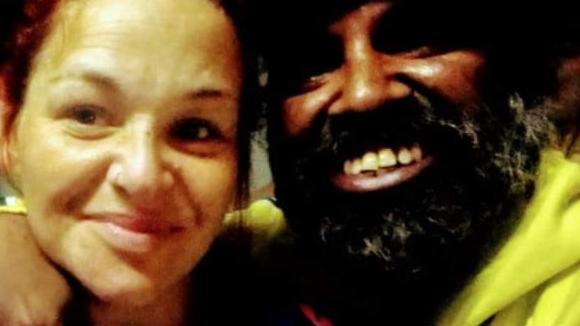
“It was massive for me,” she said.
After suffering from serious drug addiction, she had to resort to living in a rundown part of Coffs Harbour known as tent city.
Ms Quinn said meth and fentanyl had “destroyed her life”.
“It’s not something you can just walk away from,” she said.
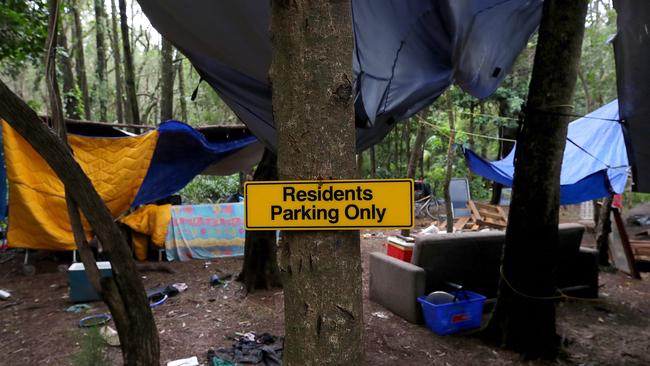
Her route out was through support from Mission Australia and drop in centre Pete’s Place.
Ms Quinn said she would go to Pete’s Place after it opened in the morning “have a cuppa, a smoke, make a feed, and have a shower”.
She said she would then “do anything to fill time”, such as “people watch”.
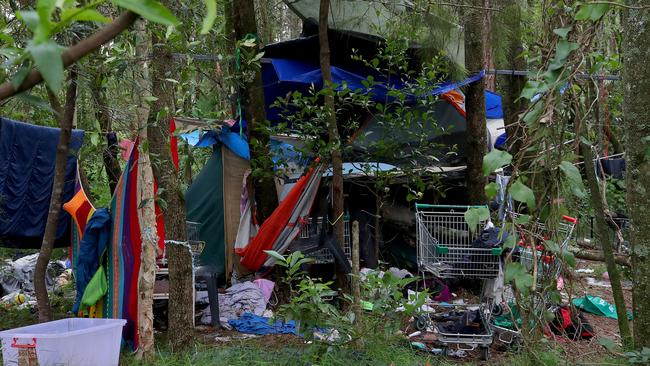
Ms Quinn said methadone “saved her life” but tent city put a halt on progress.
“You can't get onto methadone if you’re homeless,” she said.
“Drugs destroyed our lives.”
Ms Quinn hopes the community will become more aware of people in her situation.
“When you’re homeless, you become invisible,” she said.
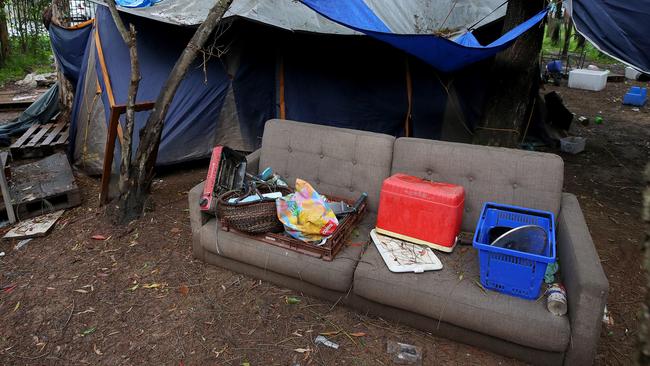
She said tent city changed people.
“They would get this look – it could be living there for a year or five minutes,” she said.
“You watch someone’s heart shatter when they realise this is it.
“It was horrible. I felt like a zoo animal.”
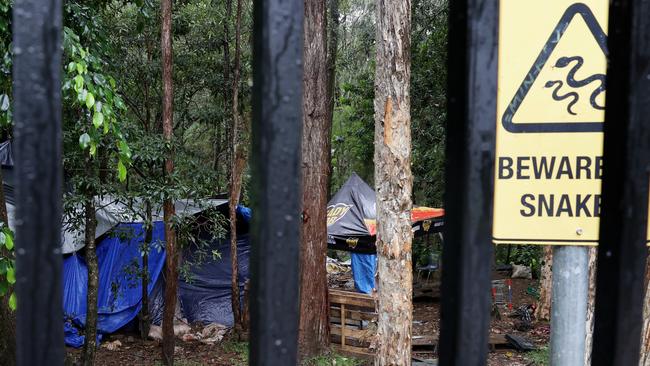
Her memories and experiences of tent city act as a constant reminder of the desperate lows she faced.
“If I was still in tent city I’d be dead,” she said.
She said she knew her drug use could end up leaving her kids without a mother.
“With every shot you could overdose,” she said.
Yet without each hit, Quinn would feel “chronically ill”.
Quinn said she worried for her safety every time she had to sleep, so would instead resort to sleeping during the day.
For most people, sleep is a time of safety and comfort, while for Ms Quinn it was a time of fear.
“You are vulnerable down there, if you go to sleep anything can happen,” she said.
Quinn spent her first months sleeping on a chair near the community centre to protect herself.
“You can’t lock a door or shut a window, you have no privacy,” Ms Quinn said.
“I got brave down there.”
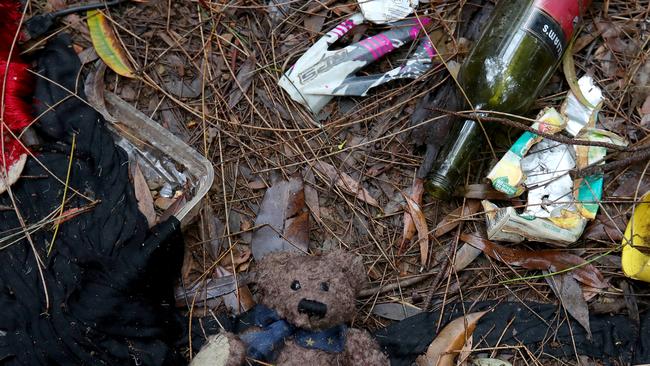
Quinn held no sense of belonging, her possessions were merely temporary.
“Food and clothing you own has a 24 hour life – people steal it and there's nowhere to put it,” she said.
Having no exposure to the media meant Quinn was unaware of what was happening outside of tent city.
“I didn’t even know what Covid was,” she said.
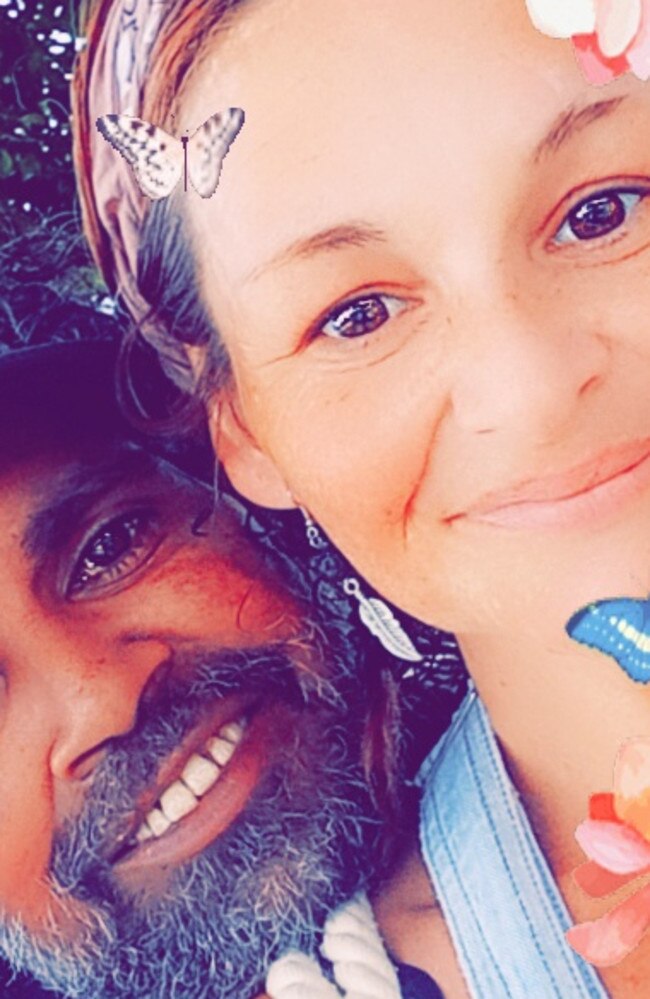
Nine months later, her partner Roddy lives with her and has been a supportive presence.
Although she has rebuilt her life, it’s not without hardships.
“There is an expectation that the minute you get a house everything will be perfect,” Quinn said.
She said her time in tent city “had to happen”.
She said she and her partner had set goals as a couple and were working to achieve them.
If you, or someone you know is homeless or at risk of becoming homeless, reach out to Link2home Homelessness at 1800 152 152 for assistance.




